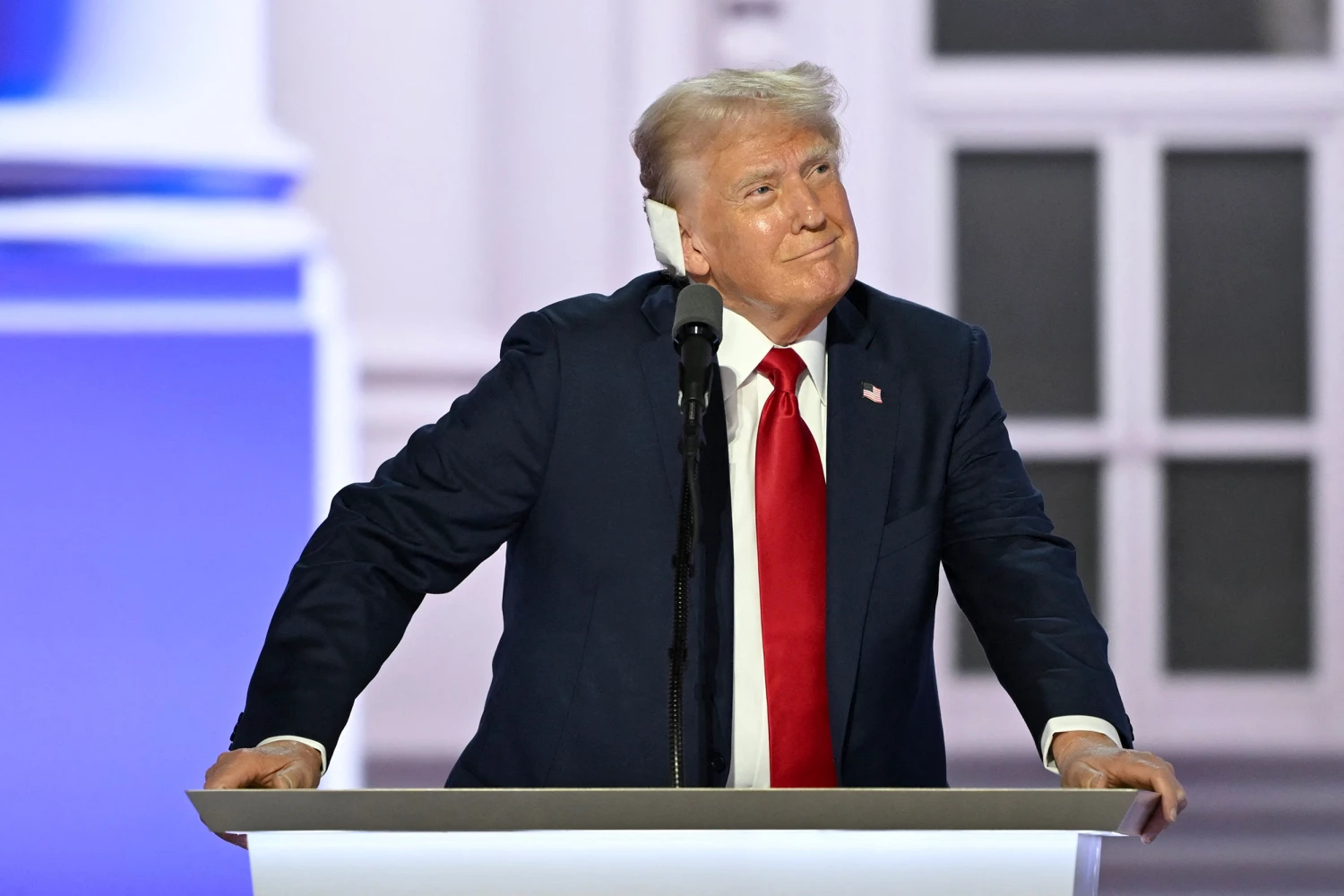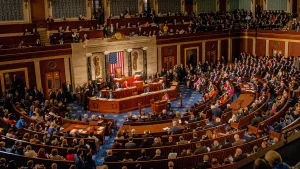President Donald Trump is confronting a growing political challenge as his approval ratings continue to slide, signaling a shift in public sentiment and potential turbulence ahead for his administration. New polling data, released by both national and state-level organizations, reveals declining approval across multiple demographics—and even within traditionally supportive Republican regions.
National Approval Slips in Recent Surveys
According to the latest numbers from Emerson College Polling, President Trump’s approval rating has dropped to 45%, with disapproval ticking slightly higher at 46%. Perhaps more telling, 9% of respondents say they are undecided, highlighting the fragility of current public opinion. The figures mark a noticeable dip from the 49% approval rating reported by Emerson in January.
This downward trend suggests more than just routine fluctuations. Political analysts point to a combination of policy missteps, controversial legislation, and uneven economic messaging as potential drivers behind the erosion of support. The near-even split between approval and disapproval further underscores the deep polarization defining American politics in 2025.
Independent Voters Lean Toward Democrats
Spencer Kimball, executive director of Emerson College Polling, emphasized that independents—a critical swing bloc—are currently favoring Democrats by a margin of 37% to 27%. However, 36% remain undecided, indicating that this group could still swing the political momentum in either direction depending on future developments.
With the midterms looming, independents may ultimately determine control of Congress. The Trump administration’s ability to address key concerns—such as inflation, immigration, and foreign policy—will likely shape how these undecided voters break in the months ahead.
Alarming Signs from Texas
In a surprising turn, a separate poll conducted by the University of Texas and the Texas Politics Project shows Trump’s approval in the Lone Star State falling to just 44%, with disapproval rising to 51%. That marks a troubling development for a president whose base has historically relied on strong support from Texas voters.
Texas disapproval extends beyond general performance. Only 39% of respondents approve of Trump’s handling of the economy, while 51% disapprove. When it comes to inflation and rising prices—a top concern for many Americans—just 34% expressed approval, compared to 52% who disapprove.
Even among Republicans in Texas, cracks are forming. While 87% of GOP voters still support the president, that’s down from 89% in April—a small but significant sign of waning loyalty among his base.
Policy and Public Response
Trump’s controversial legislative proposal, dubbed the “Big Beautiful Bill,” has drawn criticism from both fiscal conservatives and progressive Democrats. Designed to address infrastructure and economic concerns, the bill’s hefty price tag and uncertain impacts have triggered bipartisan skepticism.
Meanwhile, Trump’s decision to deploy the National Guard in response to immigration-related protests in Los Angeles has sparked another wave of controversy. While some view the move as necessary to maintain order, others argue it represents an overreach of federal authority and has further alienated moderate and independent voters.
Perception of National Direction and Foreign Affairs
The Emerson poll also revealed that 53% of Americans believe the country is headed in the wrong direction, compared to 48% who say it’s on the right track. This pessimistic outlook often correlates with reduced support for incumbents and could become a key talking point for challengers in upcoming elections.
On the global stage, Trump’s military strikes against Iranian nuclear facilities and his efforts to de-escalate conflict between Iran and Israel have drawn mixed reactions. While the interception of Iranian missile attacks on U.S. targets has been cited as a success, overall public opinion on foreign policy remains divided, and ongoing instability in the Middle East continues to pose political risks.
Economic Realities and Public Sentiment
Above all, it’s the economy that remains the most significant concern for voters. Inflation, wage stagnation, and rising costs of living are weighing heavily on American households. The polling from Texas serves as a warning sign: public patience is wearing thin, and economic anxiety is driving dissatisfaction across party lines.
Looking Ahead
The Trump administration now faces a critical juncture. With approval slipping and independent voters leaning left, the path forward will require both effective policy execution and strategic public messaging. While a large portion of the electorate remains undecided, the window to sway them may be narrowing.
In a political climate as volatile as today’s, even a few points in approval can alter the national landscape. For now, the numbers suggest a need for recalibration if the administration hopes to maintain momentum into the 2026 midterms and beyond.

Sarah Mitchell is a bestselling novelist recognized for her insightful and emotionally resonant stories that explore the complexities of human relationships. Originally from Denver, Colorado, Sarah grew up in a family of teachers who nurtured her curiosity and love for storytelling. She studied psychology at Stanford University, where she became fascinated by the intricacies of human behavior—an interest that would later shape her writing career. Sarah’s novels are praised for their nuanced characters, intricate plots, and ability to capture the subtle tensions that define love, friendship, and family ties. Her breakthrough novel, The Spaces Between Us, became an instant bestseller, lauded for its honest portrayal of strained family relationships and the fragile bonds that hold people together. Since then, she has published several works that continue to captivate audiences around the world. Outside of her writing career, Sarah is passionate about mental health advocacy and often partners with organizations to promote awareness and support for those struggling with emotional well-being. Her personal life is quieter—she enjoys hiking in the Colorado mountains, practicing yoga, and spending time with close friends. With each new book, Sarah Mitchell cements her reputation as a writer who illuminates the beauty and struggles of human connection.









